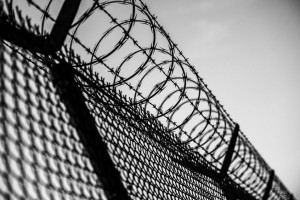Stop Jailing the Poor: Bail Reform Becoming a Priority

“I even got bit by a rat.”
This quote from an inmate appeared in a July 5 article in the St. Louis American written by State Representative Joshua Peters. In it, Peters describes his experience visiting the Workhouse, a medium-security institution that primarily houses pre-trial inmates who haven’t been bailed out. Rats, roaches, mold, and, recently, blistering heat in the un-airconditioned facility have brought scrutiny and a community-led protest that was met with riot police and tear gas. Fortunately, this mounting public pressure led to the installation of portable air conditioning units predicted to bring temperatures down to a brisk 78 degrees, but the broader concerns illustrated by this scenario remain.
On July 20, the New York Times published an op-ed written by Senators Rand Paul (R-KY) and Kamala Harris (D-CA) in support of their Pretrial Safety and Integrity Act. This act seeks to address the issues and inequities created by our country’s bail system by offering incentives to communities that find alternatives; the act’s bi-partisan sponsorship is a testament to the growing consensus that action on this issue is needed.
These two examples are part of a trend that questions not just the effectiveness of the bail system, but also its basic humanity. Many of the inmates at the Workhouse, and at facilities across the country, have not been convicted—they’re simply awaiting trial. While wealthier residents get to do so from the comfort of their own homes, those who cannot come up with the necessary bail money are stuck in jails. Unsurprisingly, defendants who can’t afford bail are significantly more likely to plead guilty to minor offenses; they would rather accept a criminal record than experience a potentially life-changing period of pre-trial detention. Slowly, a consensus is building that something needs to be done in the face of such blatantly unjust laws; from a humanist perspective, this is a clear imperative.
The Humanist Manifesto III describes humanism as “guided by reason, inspired by compassion, and informed by experience,” and the current operation of this country’s bail system manages to flagrantly violate all three of these tenets.
Aside from the irrationality of privileging the already privileged by allowing them to buy a measure of freedom, our current bail system has no logical foundation. A reasonable system would involve assessing an individual’s flight risk. After all, that’s what bail as a concept was intended to do—give people an incentive to show up in court, not pointlessly punish those who can’t afford it. Bail is also a bad deal financially—when someone can’t post bail, they have to be held in a state or local facility. A week of holding someone at Rikers Island in New York can cost the city more than $2,500—presumably much more than the interest earned by the bail itself. There seems, then, to be no reason behind the decisions by judges and prosecutors to set bail—unless they really believe that someone facing an open-container violation is a flight risk.
One has only to read a sampling of the stories of individuals whose lives have been turned upside down by the bail they couldn’t afford to understand that this is anything but compassionate. From a man detained for weeks after a police officer decided the straw in his soda was drug paraphernalia, to a woman who lost custody of her child due to jail time resulting from a trip to the store to buy diapers, bail cruelly and unnecessarily victimizes those who can least afford it. And frankly, innocence is irrelevant in the debate over bail. For one thing, many of the people affected are picked up for minor offenses; often, crimes in which pre-trial detention is the only jail time a defendant faces. And even in the case of those facing more serious charges, it is absurd and unfair to make their freedom contingent upon their financial status.
Experience also provides us with weighty arguments against our bail system. As mentioned, defendants unable to pay bail are more likely to accept plea deals, despite there being no link between income levels and guilt. In addition, there’s little reason to believe that higher bail makes an individual more likely to appear in court. Since 1991, Washington, DC, has typically released, without bail, about 90 percent of those arrested and seen only ten percent of those people experience any sort of legal trouble before their trial. On the other side of the issue, there is evidence that pre-trial detention actually makes individuals more likely to commit another crime both before and after their trial.
From any perspective, but certainly from a humanist one, this country’s bail laws are an exceptionally egregious blight on an already troubled legal system. In a society where the rich are privileged at every turn, these laws are an assault on the rights of the poor that is studiously ignored by a society desensitized to the structural violence of our criminal justice system. Fortunately, there appears to be increasing awareness of the unsustainability of current bail practices, and we can hope that as more elected officials begin to take notice, further public support for bail reform will build.
